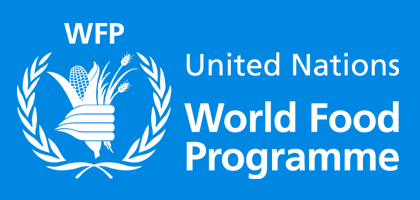Aid workers warn of precarious situation in northern Sri Lanka
 Geneva - The United Nations' World Food Programme said Friday it had very limited access to the conflict zone in northern Sri Lanka and had not been able to deliver aid for weeks.
Geneva - The United Nations' World Food Programme said Friday it had very limited access to the conflict zone in northern Sri Lanka and had not been able to deliver aid for weeks.
A four-hour humanitarian "window" was supposed to be opened each Thursday, but the agency has not been able to send in food aid since January 16, said WFP spokeswoman in Geneva, Emilia Casella.
"Four hours, anyway, is not enough time to get the teams in and bring them back out," she noted, adding that more time was needed. The last team that went in was stuck there for about two weeks.
"The entire population of Vanni is facing a food crisis. Their livelihoods have been almost completely destroyed and they are dependent on aid agencies for survival," Casella said.
Aid agencies said about 250,000 people were trapped inside the zone.
Sophie Romananes with the International Committee of the Red Cross in Sri Lanka told Deutsche Presse-Agentur dpa that people were in desperate need of aid which was not arriving.
"They are now trapped in small area under intense fighting. There is no safe place to go, to find shelter. They are unable to flee," Romananes said in a telephone interview.
Residents have said high water levels have prevented the people from being able to dig bunkers while they were stuck without proper hygiene conditions and limited food.
Romananes called on the warring parties "to grant safe access for patients but also to allow aid agencies to bring in assistance to the people still there."
The ICRC was one of the only agencies operating inside the conflict zone. Its main office in Colombo was stoned by protesters Friday, claiming the agency was supporting the rebel Tamil Tigers, an allegation the ICRC rejected.
Lisebeth List, the medical coordinator for Medicine Sans Frontier based just outside of Vanni, said the need for food aid and medical supplies was highlighted by the weakened state of patients fleeing the conflict she was receiving at a hospital.
She said the hospital had experienced an influx of patients in recent days.
"It is a big challenge for us and the hospital staff to cope with such a large number of people who need surgeries, antibiotics and care," List said by telephone. "Sometimes the wounds are weeks old and at risk of infections."
Some 5,000 people were said to have fled the conflict area so far this year.
The New York based Human Rights Watch has condemned both the government forces and the rebels for their behaviour.
It said the government has showed an "appalling disregard for the well-being of the civilian population," by saying it would not be responsible for the safety of residents in areas controlled by the rebels, who allegedly were not letting people escape.
The military launched operations to recapture rebel-held areas in August 2006. (dpa)